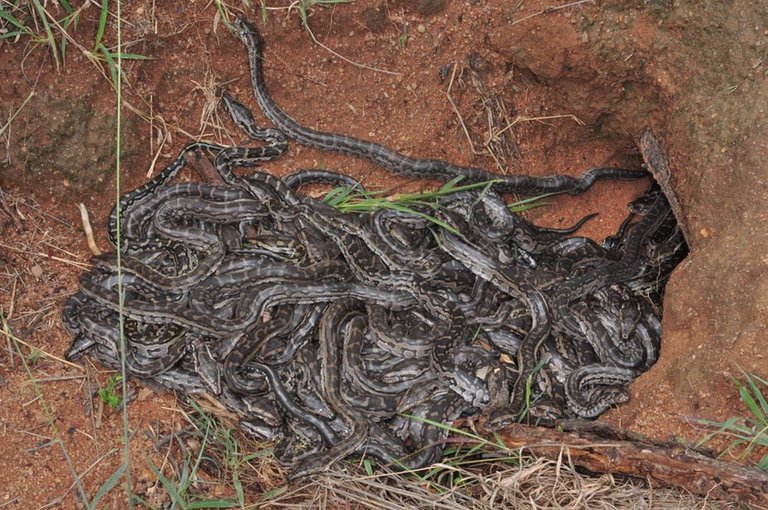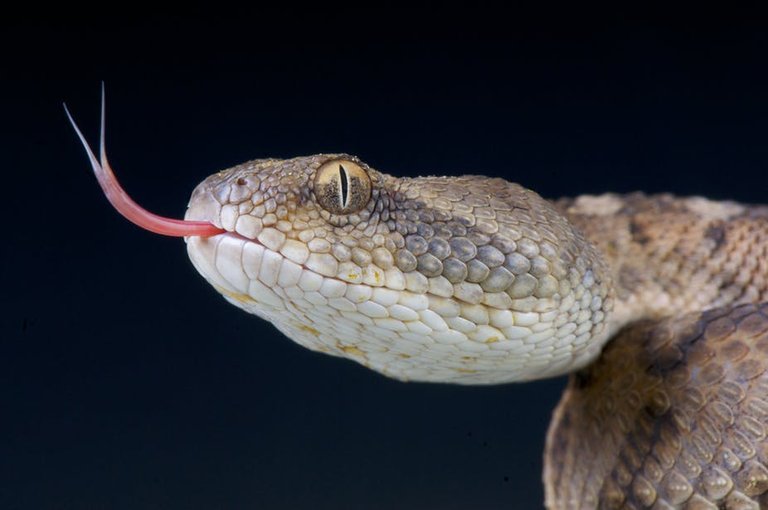Mating in southern African pythons is a serious business and is costly just a one and night stand. Some males were recorded remaining with receptive females for months. In one instance a male followed a female for more than 2 kilometres over a 3 month period. when he went through a shedding cycle and got left behind, he found her again after she had moved a KM away
After southern African python babies hatch, they remain at the nest site with the mother. For the first day or so, they remain on the clutch of eggs, but they then regularly trek to the surface where they bask for short periods tightly packed together with their nest mates. At night, the babies rest protected and warmed in their mother’s coils in the nest chamber. The babies shed their skin 12 to 14 days after hatching. A few days later, they all disperse from the nest during the night.
Many of the toxins in their venom target the blood to induce clotting This disrupts the body’s ability to regulate blood flow and results in severe internal bleeding. stroke, and shock are typically the cause of death following VICC. Antivenom is the only effective antidote.
Our results show the failings that come from using a geographically restricted range of antivenoms and marketing them inappropriately. Given the seriousness of snakebite in Africa and around the world, this puts the pressure firmly on antivenom manufacturers to develop, market, and distribute their responsibly.
Reptiles slice through their weakened eggshells with an egg-tooth on their snouts and start to breathe. Some reptiles also produce sounds, but unlike birds they use a larynx and vocal cords, very similar to humans.
When you get right down to it, birds and reptiles do pretty much the same thing in the egg. It’s not that surprising, as birds and some reptiles are quite closely related. They’ve all evolved specific eggs to both protect growing embryos and provide them with what they need including air
Hi! I am a robot. I just upvoted you! I found similar content that readers might be interested in:
http://theconversation.com/unsuitable-antivenoms-are-being-sold-in-africa-costing-lives-83658
ok